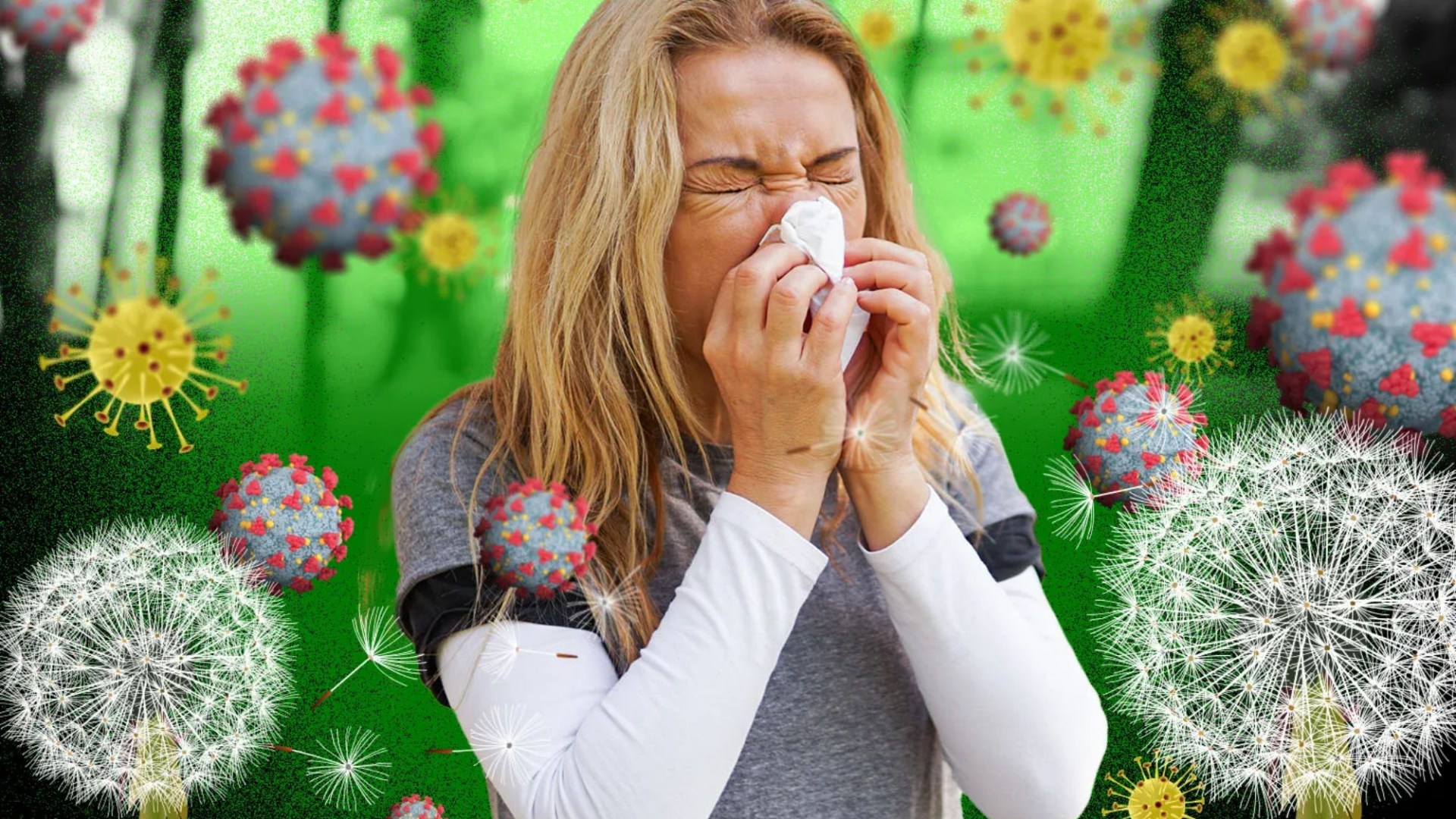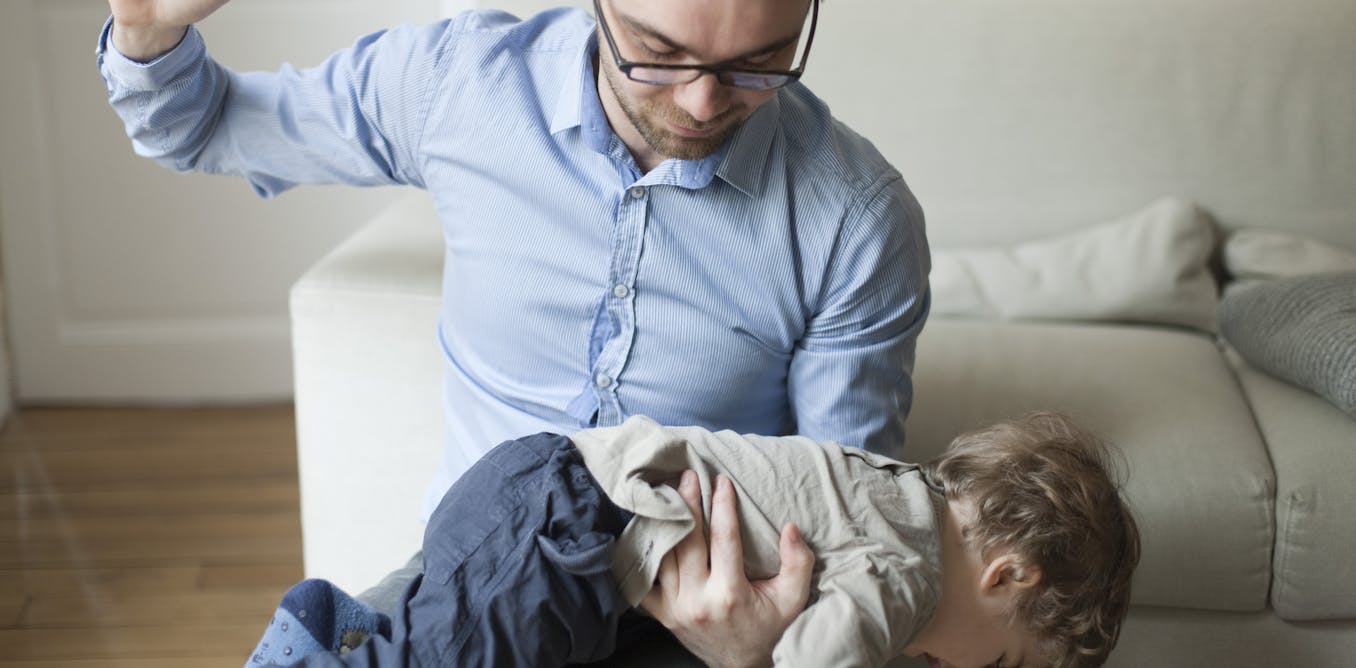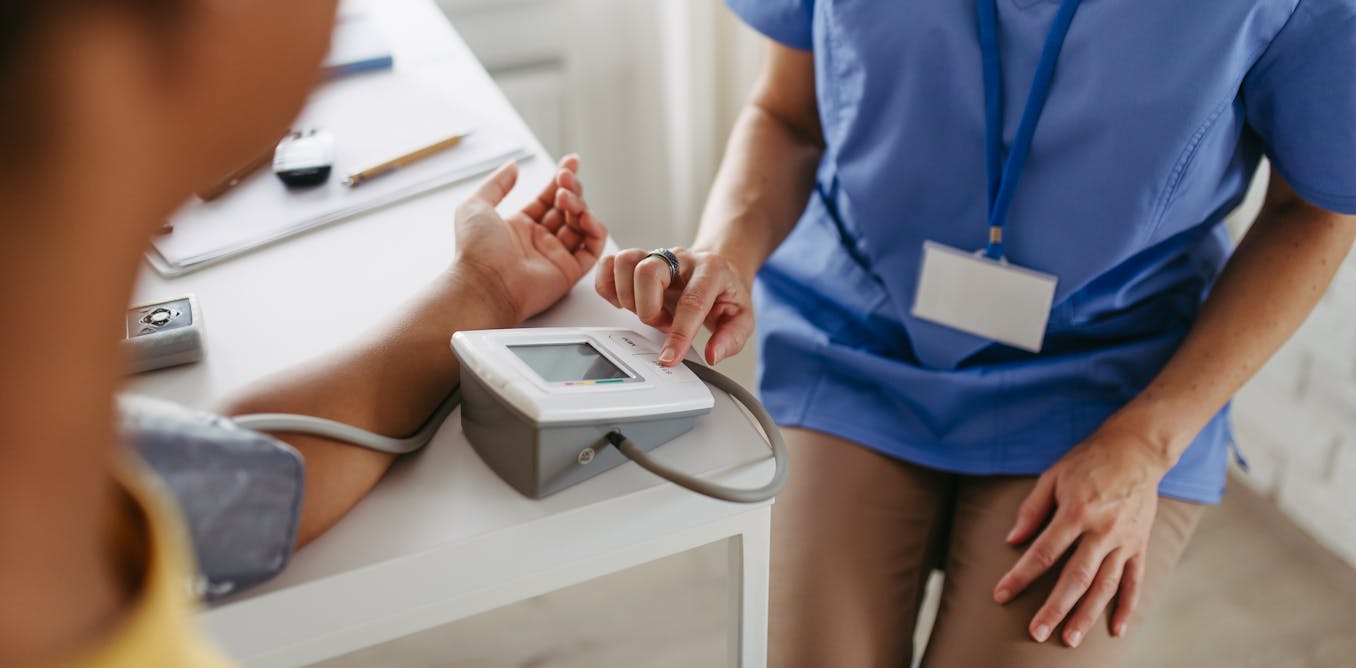WITH soaring pollen counts striking most parts of the UK, you might put down your sniffles and sneezing to hay fever.
But it’s also likely these oh-so-common symptoms are caused by a summer cold or even Covid.
3

3
A pollen bomb has descended on England, Wales and Northern Ireland, with “very high” pollen counts set to spread into Scotland too over the coming days, the Met Office has warned.
Hay fever hell is expected to peak on Sunday and continue into Monday, as the entire UK is set to see soaring levels of pollen – apart from the most northern parts of Scotland.
Though very high pollen counts will surely cause misery to hay fever sufferers, people with asthma were warned to “stay inside” as they’re at higher risk of deadly asthma attacks.
But with Covid still swirling around and summer colds in full swing, your runny nose, tickly throat and sneezing could be caused by any of the above options.
Covid cases are certainly lower than they were January, when health chiefs warned of the new JN.1 variant – an offshoot of Pirola and Omicron – spreading across England to make up 60 per cent of cases.
But recent UK Health Security Agency (UKHSA) reports indicate that cases are slowly ticking up – increasing by eight per cent in week leading up to June 6.
Though symptoms of hay fever, Covid infection and a spring cold are undoubtedly similar, there are some key differences in how each condition manifests.
Here’s how to get to the bottom of what’s causing your sniffles.
Is it hay fever?
With pollen counts peaking across England over the next few days, there is a good chance your sneezing and stuffy nose is caused by hay fever.
Hay fever – also known as seasonal allergic rhinitis – is an allergic reaction to pollen and other airborne allergens such as fungal spores.
As your immune system overacts to antigens such as pollen, releasing histamines, here are some typical symptoms you might experience:
- Sneezing
- Coughing caused by postnasal drip (mucus dripping down the throat from the back of the nose)
- A runny or blocked nose
- Itchy, red or watery eyes
- Itchy throat, mouth, nose and ears
Less commonly, you may also experience:
- Loss of smell
- Pain around the sides of your head and your forehead caused by blocked sinuses
- Headache
- Earache
- Tiredness
Both allergies and colds can cause coughing and sneezing.
But allergies tend to cause itchiness around your eyes and in the throat, while a cold may cause a sore throat but not itchiness.
You may also notice that your eyes are particularly watery.
And while colds usually last one to two weeks, hay fever can last for weeks or months, depending on the pollen count.
The higher the pollen count, the worse the symptoms will be.
If you have asthma, your asthma symptoms may also get worse when you have hay fever.
How To Treat Hay Fever

There’s currently no cure for hay fever and you cannot prevent it.
But you can do things to ease your symptoms when the pollen count is high.
- Put Vaseline around your nostrils to trap pollen
- Wear wraparound sunglasses to stop pollen from getting into your eyes
- Shower and change your clothes after you have been outside to wash pollen off
- Stay indoors whenever possible
- Keep windows and doors shut as much as possible
- Vacuum regularly and dust with a damp cloth
- Buy a pollen filter for the air vents in your car and a vacuum cleaner with a HEPA filter
- Try to stay at home and avoid contact with other people if you have a high temperature or you do not feel well enough to do your normal activities
Source: NHS
Is it a spring cold?
Though we usually associate colds with winter, it’s possible to get them at any time of the year, including the spring.
The main symptoms include:
- A blocked or runny nose
- Sneezing
- A sore throat
- A hoarse voice
- A cough
- Feeling tired and unwell
According to the NHS, you may also suffer from:
- A high temperature
- Aching muscles
- A loss of taste and smell
- A feeling of pressure in your ears and face
A cold will usually only last for about one or two weeks – so if your sneezing persists for longer than that, you probably have hay fever.
Seasonal allergies don’t usually cause fever, but you might get one with a cold.
Meanwhile, allergies most often won’t cause a cough and sore throat like a cold would.
How To Treat A Cold

You can usually treat a cold at home without seeing a GP.
Do the following things to help get better quicker:
- Get plenty of rest
- Drink lots of fluid, such as water, to avoid dehydration
- Eat healthy food
- Gargle salt water to soothe a sore throat (not suitable for children)
- Drink a hot lemon and honey drink to soothe a sore throat
- Breathe in steam to ease a blocked nose – try sitting in the bathroom with a hot shower running
If you have a high temperature or do not feel well enough to do your normal activities, try to stay at home and avoid contact with other people until you feel better.
You can also try medicines like paracetamol and ibuprofen to ease and aches pains and lower your temperature.
Source: NHS
Is it Covid?
Health chiefs have warned that a rise in Covid cases could be driven by waning immunity built from vaccines and prior infections, as well the emergence of new strains dubbed the FLiRT variants.
The most common Covid symptoms include:
- Runny nose (31.1 per cent)
- Cough (22.9 per cent)
- Headache (20.1 per cent)
- Weakness or tiredness (19.6 per cent)
- Muscle ache (15.8 per cent)
- Sore throat (13.2 per cent)
- Trouble sleeping (10.8 per cent)
- Worry or anxiety (10.5 per cent)
The most common symptom of the JN.1 variant was a runny nose, with 31 per cent of patients reporting the symptom, an ONS report said.
But loss of taste and smell – once a hallmark sign of the bug – is only reported by two to three per cent of infected Brits, according to the winter Covid report from the Office For National Statistics (ONS) in the UK.
Fever, another typical symptom of older variants, was only experienced by two per cent of people.
ONS scientists suggest that anxiety can also be a sign that someone has the bug, as 10 per cent of Brits with Covid reported anxiety, excess worrying or trouble sleeping since early November.
Meanwhile, 23 per cent of people reported experiencing a cough, and 20 per cent a headache.
Nearly 20 per cent of people with the bug reported weakness and fatigue, 16 per cent reported experiencing muscle aches, and 13 per cent had a sore throat.
How To Treat Covid

You may be able to look after yourself at home if you have Covid.
Most people with COVID-19 will have mild symptoms and feel better within a few weeks.
If you have a high temperature, it can help to:
- Get lots of rest
- Drink plenty of fluids (water is best) to avoid dehydration – drink enough so your pee is light yellow and clear
- Take paracetamol or ibuprofen if you feel uncomfortable
If you have a cough, it’s best to avoid lying on your back. Lie on your side or sit upright instead.
To help ease a cough, try having a teaspoon of honey. But do not give honey to babies under 12 months.
If this does not help, you could contact a pharmacist for advice about cough treatments.
If you’re feeling breathless, it can help to keep your room cool.
Try opening a window but do not use a fan as it may spread the virus.
People at highest risk of getting seriously ill from COVID-19 may be eligible for treatments.
Source: NHS
How can you tell if you have Covid or hay fever?
Covid-related coughing is commonly persistent and dry, whereas a cough associated with hay fever is more “tickly”, due to mucus from the nose trickling down the throat, according to Senior Lecturer in Genetic Immunology at Nottingham Trent University, Samuel White.
If you experience loss of smell and taste, with pollen allergies it’ll be caused by a blocked nose, Dr White wrote in The Conversation.
If you have this symptom without a blocked nose, it could be more likely to be Covid.
Hay fever also won’t cause muscle aches, though Covid might.
And like colds, Covid most likely won’t last more than a week or two.
If you suspect you have the virus, or your hay fever symptoms feel dramatically worse, it might be useful to take a Covid test.

3




